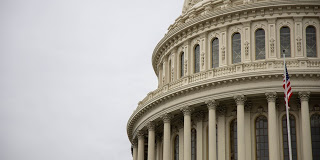Summary:
As central banks act, ‘independence is a myth’ Sheng recognises the social impact of central banks taking widespread action to curb upsets. ‘Central bank independence has always been a myth, like the emperor with no clothes. When push comes to shove, we have seen central banks funding government deficits carte blanche.’ Injecting liquidity ‘is the right short-term move because we are in wartime conditions of grave uncertainty. But quantitative easing has been increasingly interpreted as central banks funding the 1% through asset bubbles and taxing the savings of the middle and lower classes.’ The US debate is about rescuing the corporations, the economy or the population. ‘That’s a tough call. If the “precariat” says the money is not coming to me, social revolution is the next
Topics:
Mike Norman considers the following as important:
This could be interesting, too:
As central banks act, ‘independence is a myth’ Sheng recognises the social impact of central banks taking widespread action to curb upsets. ‘Central bank independence has always been a myth, like the emperor with no clothes. When push comes to shove, we have seen central banks funding government deficits carte blanche.’ Injecting liquidity ‘is the right short-term move because we are in wartime conditions of grave uncertainty. But quantitative easing has been increasingly interpreted as central banks funding the 1% through asset bubbles and taxing the savings of the middle and lower classes.’ The US debate is about rescuing the corporations, the economy or the population. ‘That’s a tough call. If the “precariat” says the money is not coming to me, social revolution is the next
Topics:
Mike Norman considers the following as important:
This could be interesting, too:
Robert Vienneau writes Austrian Capital Theory And Triple-Switching In The Corn-Tractor Model
Mike Norman writes The Accursed Tariffs — NeilW
Mike Norman writes IRS has agreed to share migrants’ tax information with ICE
Mike Norman writes Trump’s “Liberation Day”: Another PR Gag, or Global Reorientation Turning Point? — Simplicius
As central banks act, ‘independence is a myth’
Sheng recognises the social impact of central banks taking widespread action to curb upsets. ‘Central bank independence has always been a myth, like the emperor with no clothes. When push comes to shove, we have seen central banks funding government deficits carte blanche.’ Injecting liquidity ‘is the right short-term move because we are in wartime conditions of grave uncertainty. But quantitative easing has been increasingly interpreted as central banks funding the 1% through asset bubbles and taxing the savings of the middle and lower classes.’ The US debate is about rescuing the corporations, the economy or the population. ‘That’s a tough call. If the “precariat” says the money is not coming to me, social revolution is the next call.’

